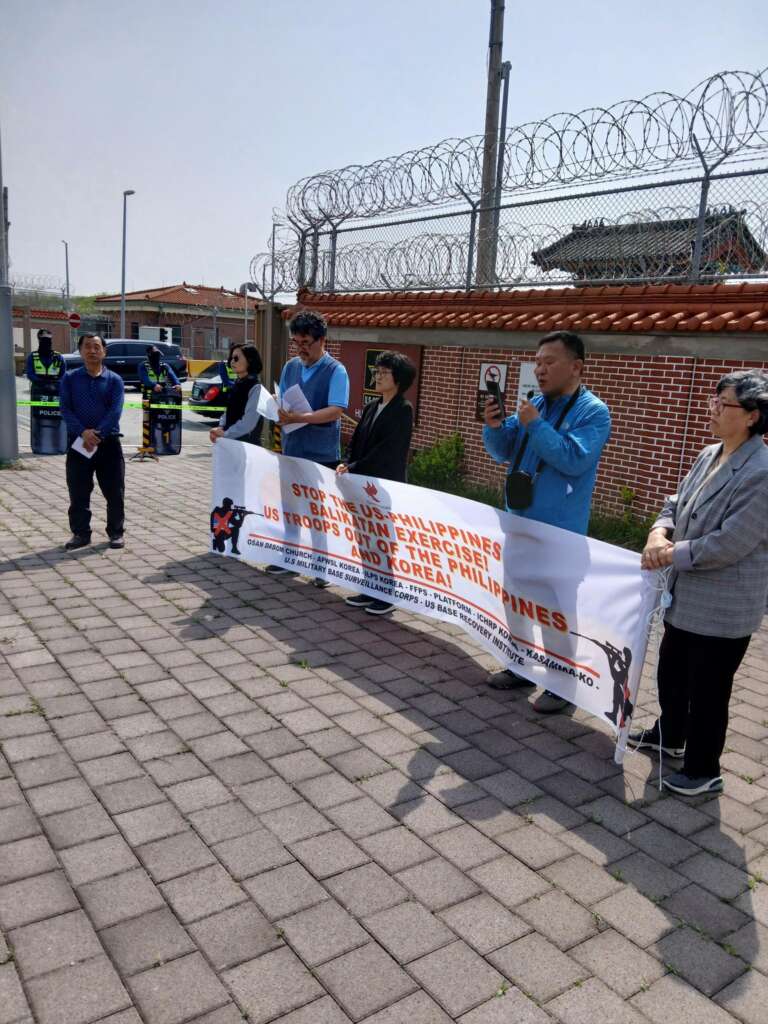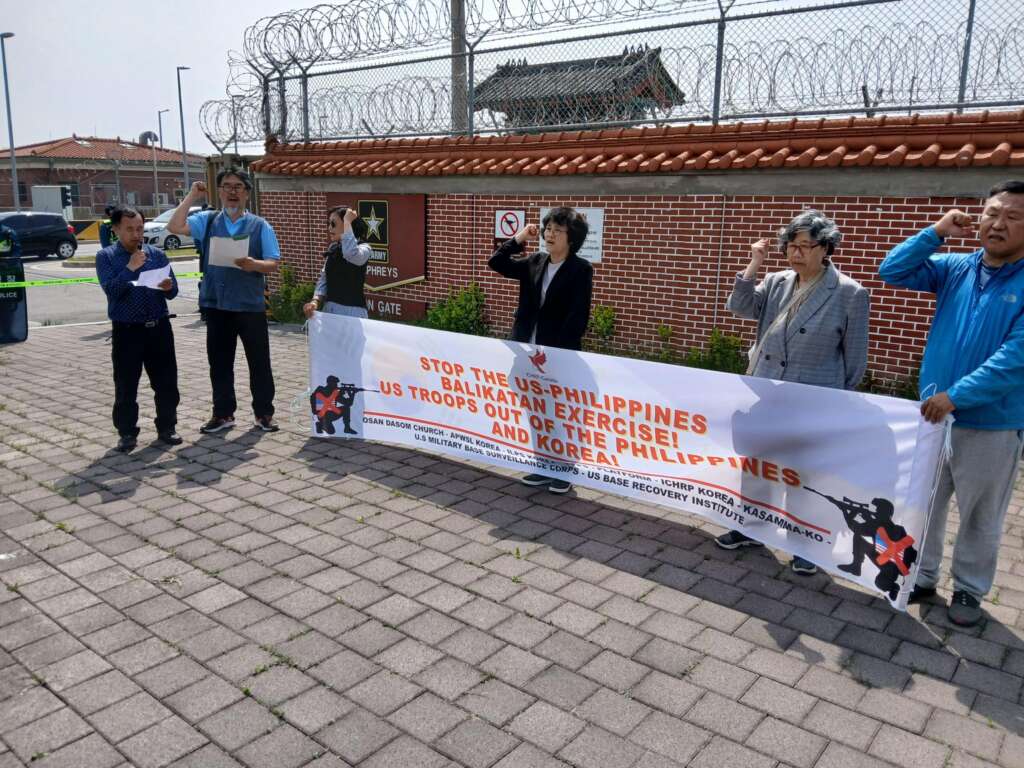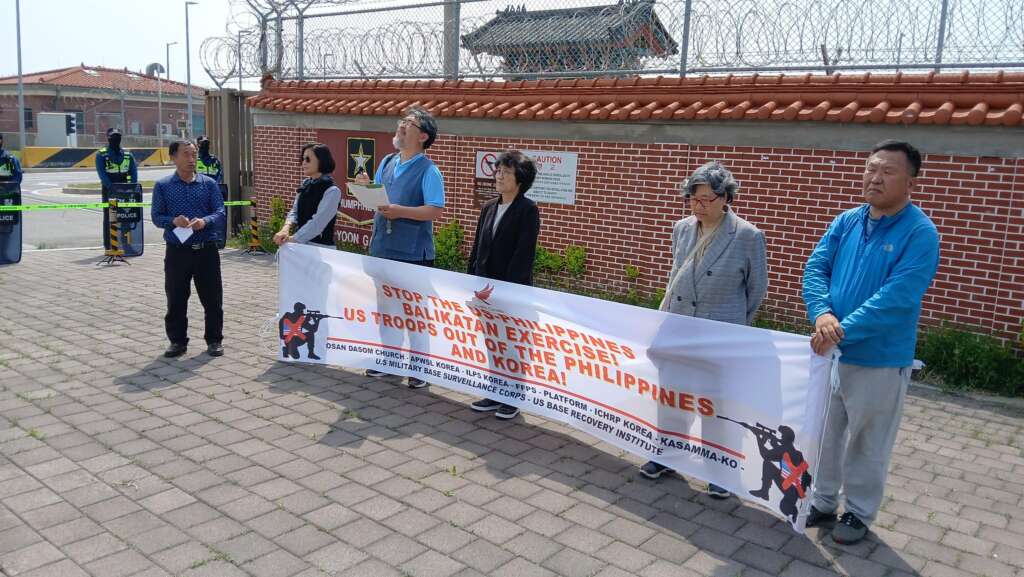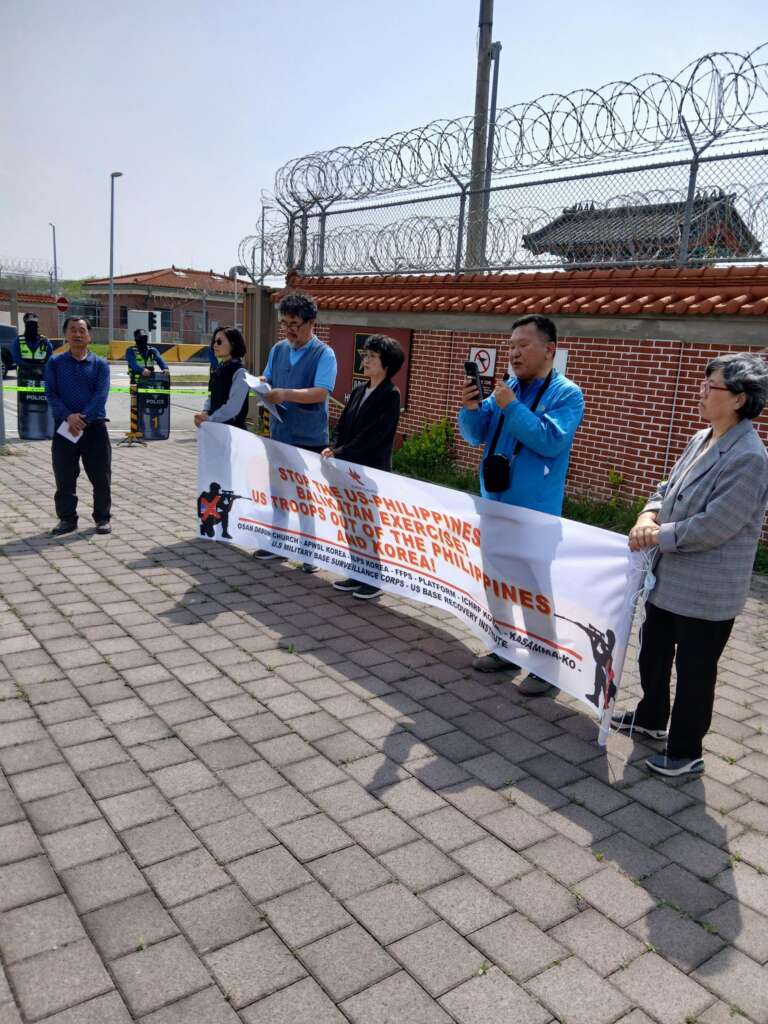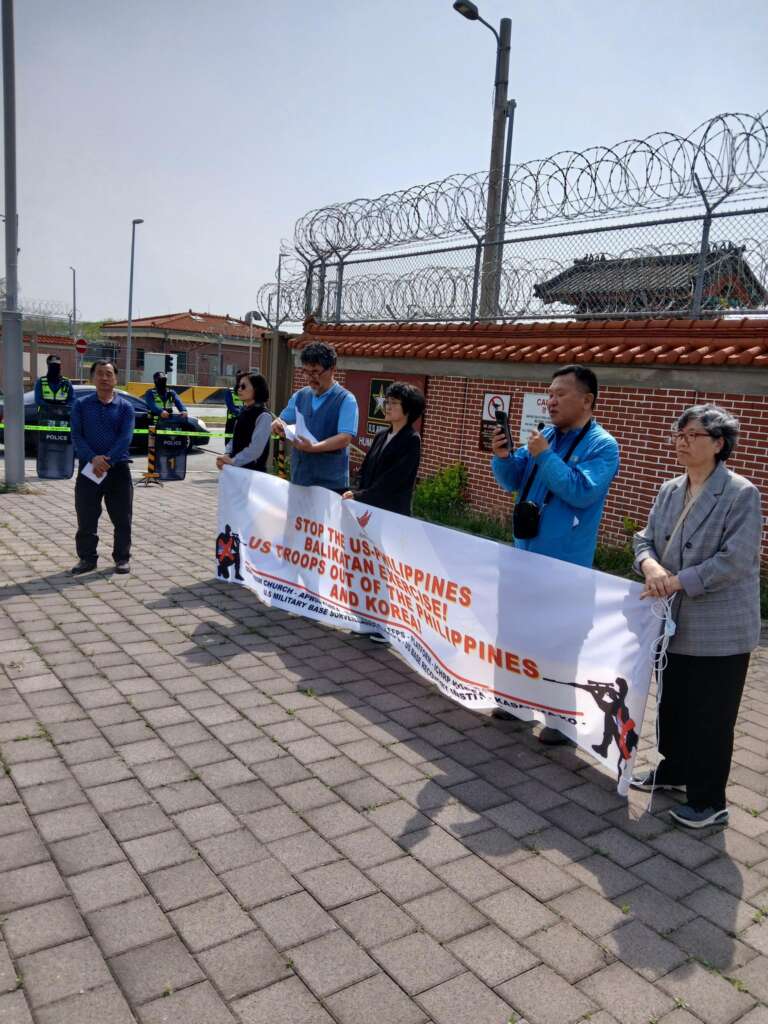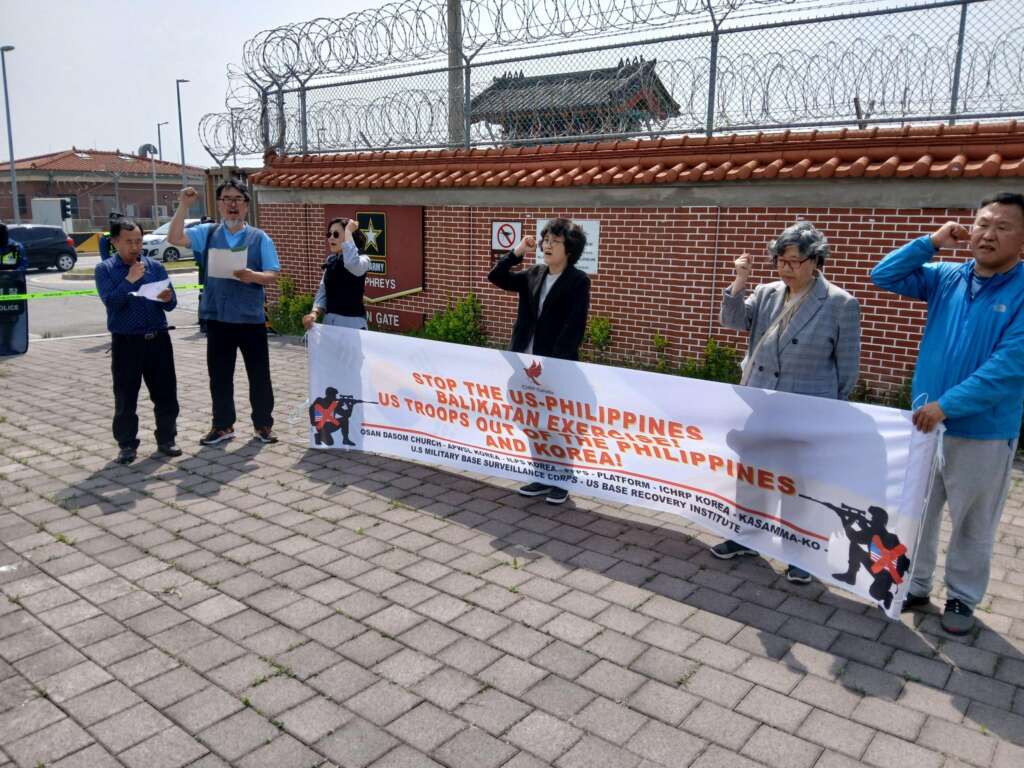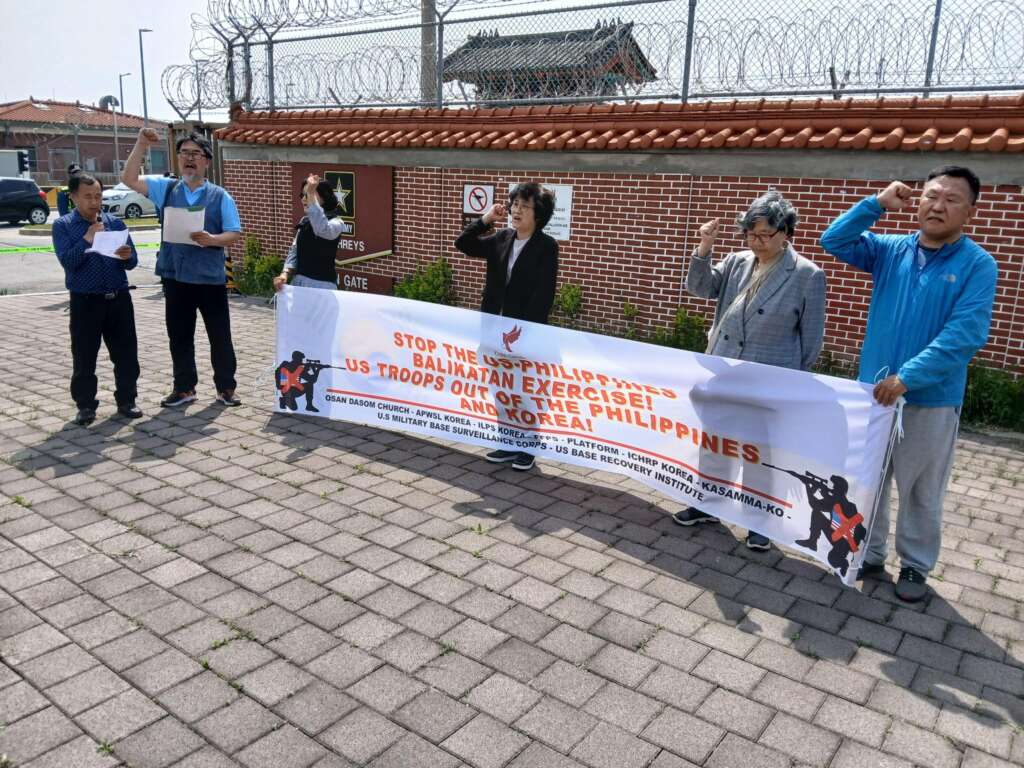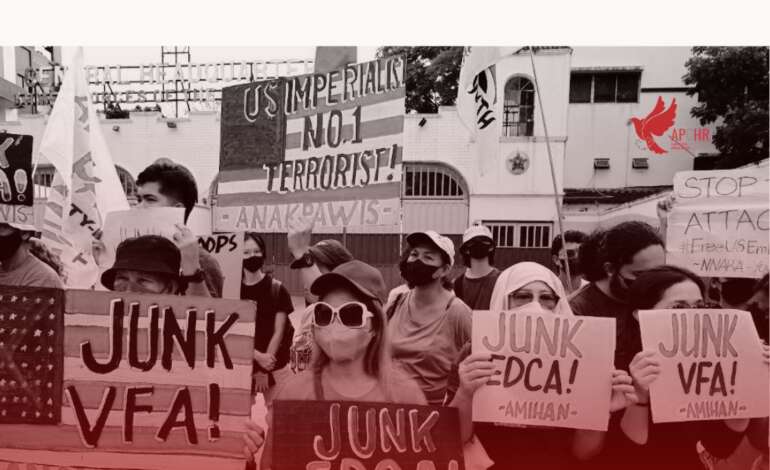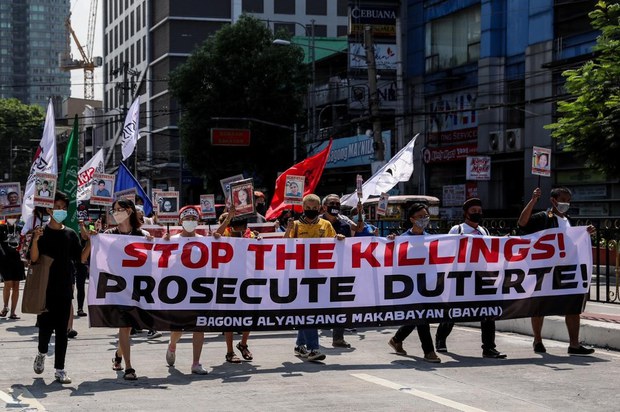Statement on the Presscon to Stop the US-Philippines Balikatan Exercise
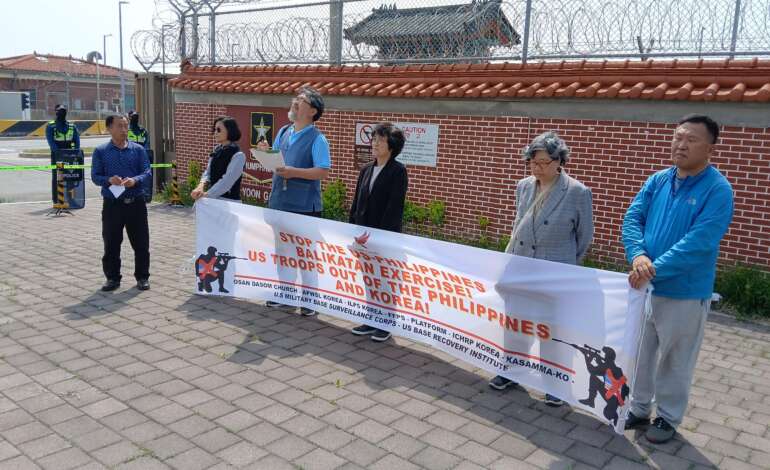
Statement on the Presscon to Stop the US-Philippines Balikatan Exercise
April 24, 2025
The International Coalition for Human Rights in the Philippines–Korea and various progressive organizations based in Korea strongly condemn the ongoing Balikatan Exercises between the United States and the Philippines. These exercises involve participation from several countries, including Japan, with observers such as South Korea and various European nations monitoring the destructive military drills. We demand an end to U.S. military intervention in both the Philippines and Korea, as the United States has a long history of sowing violence and violating the rights of individuals in both nations.
Throughout Philippine history, the United States has long been a perpetrator of violence. It began with the U.S. colonization of the Philippines, which led to the Filipino-American War, resulting in the deaths of over 200,000 people due to war and starvation. Even after granting the Philippines its so-called “independence”, the U.S. established puppet governments that continue to serve American interests to this day.
The Philippine government has implemented numerous unequal military agreements, including military cooperation deals, the establishment of U.S. military bases, the Mutual Defense Treaty, the Visiting Forces Agreement (VFA), and the Enhanced Defense Cooperation Agreement (EDCA). These agreements have contributed to violent incidents involving U.S. troops, most notably the case of American soldier Joseph Pemberton, who was convicted for the killing of a transwoman, Jennifer Laude.
Many of these agreements have no benefit for ordinary Filipinos. Instead, they often result in violence against women and children and contribute to environmental degradation.
In Korea, the situation is similar to that of the Philippines, where the United States continues to interfere with national sovereignty and commit human rights violations. According to data from Nodutdol, since the Korean War, an estimated 3 to 5 million Korean civilians were killed by U.S. forces. Today, approximately 28,500 American soldiers remain stationed across 62 military bases in Korea, which continues to infringe upon the freedom of movement of Korean residents. Most recently, from March 10 to 21, 2025, U.S. and South Korean troops carried out joint military exercises aimed at strengthening their military capabilities and alliance.
History shows that the United States has brought nothing but violence to both Korea and the Philippines, using these countries to assert its hegemony in the Asia-Pacific region and engage in warmongering against its rival nations. Through military presence, unequal agreements, and joint exercises, the U.S. continues to treat these nations as strategic pawns in its geopolitical agenda, often at the expense of local sovereignty, human rights, and regional peace.
We demand that the President Bong Bong Marcos Jr. administration and the President of South Korea abolish the unequal military treaties and agreements and stop bowing to the dictates of the imperialist United States. We call on the United States to respect the sovereignty of both countries and to cease provoking war under the guise of military cooperation. We also urge the international community to continue exposing and denouncing these practices and to call for an end to the Balikatan exercises, which only intensify militarization and lead to further human rights violations.
Stop the US-Philippines Balikatan Exercise
US Troops Out of the Philippines and Korea
Signed:
U.S. Military Base Surveillance Corps
US Base Recovery Institute
Osan Dasom Church
APWSL Korea
ILPS Korea
FFPS
